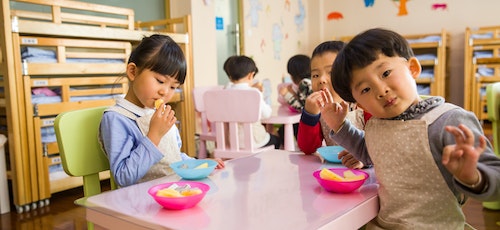Toys aren’t just playthings; they are powerful tools that contribute significantly to a child’s physical, cognitive, emotional, and social development. While children enjoy hours of fun and entertainment with their favorite toys, these seemingly simple objects play a crucial role in shaping their growth and learning. Here are the multifaceted ways in which toys benefit your child’s development.
1. Cognitive development
- Problem-solving skills: Many toys, such as puzzles, board games, and construction sets, challenge a child’s problem-solving abilities. As they figure out how to fit pieces together or strategize to win a game, they develop critical thinking skills and learn to tackle challenges.
- Creativity and imagination: Toys like art supplies, building blocks, and dolls encourage imaginative play. Children can create stories, build imaginary worlds, and develop their creative thinking, which is essential for problem-solving and innovation later in life.
- Mathematical and spatial skills: Toys that involve counting, sorting, and matching, such as building blocks or shape-sorting toys, help children grasp basic mathematical concepts and improve spatial awareness.
2. Physical development
- Fine motor skills: Toys with small parts, like LEGO sets or arts and crafts materials, require precise movements. These activities enhance a child’s hand-eye coordination and fine motor skills, preparing them for tasks like writing and drawing.
- Gross motor skills: Outdoor toys like bicycles, swings, and sports equipment promote physical activity and the development of gross motor skills. They help children improve balance, coordination, and muscle strength.
3. Language and communication
- Vocabulary and language skills: Toys that involve storytelling, like books and dolls, expand a child’s vocabulary and comprehension. These activities also encourage them to express themselves verbally and develop communication skills.
- Social interaction: Board games and role-playing toys, such as kitchen sets or action figures, often involve social play. Through these interactions, children learn to take turns, negotiate, and cooperate with others, laying the foundation for healthy social relationships.
4. Emotional and social development
- Empathy and emotional expression: Toys that depict various emotions or situations, such as dolls or action figures, can help children understand and express their feelings. This promotes emotional intelligence and empathy towards others.
- Building relationships: Sharing and cooperative play with siblings or friends over toys teach children important social skills, including conflict resolution, empathy, and the value of sharing.
5. Concentration and focus
Toys that require sustained attention and concentration, like jigsaw puzzles or model kits, help children improve their ability to focus on tasks. This skill is vital for academic success and many aspects of life.
6. Cultural understanding
Toys that represent different cultures, traditions, and backgrounds can foster an appreciation for diversity and promote cultural understanding. They can open up discussions about the world’s various cultures and help children develop respect for others.
7. Confidence and self-esteem
When children master a new skill or complete a challenging puzzle, it boosts their self-esteem and confidence. These positive experiences are vital for developing a healthy self-image.
Choosing the right toys for your kids
While toys offer numerous benefits, it’s crucial to select age-appropriate and safe toys for your child. Here are some tips:
- Consider age and developmental stage: Choose toys that align with your child’s age and current developmental abilities. Each child develops at different rates, and toys should align with their abilities and interests.
- Quality over quantity: Invest in high-quality toys that are durable and safe, even if they come at a slightly higher price. Quality toys are often more durable, safer, and better for your child’s development. They can withstand rough play and last longer, making them a better investment in the long run.
- Limit screen time: While technology can be educational, limit screen time and encourage hands-on, interactive play. Excessive screen time can hinder physical activity, creativity, and social development.
- Rotate toys: To keep playtime fresh and engaging, rotate toys every so often to maintain your child’s interest. When children have access to a variety of toys, they stay interested and stimulated.
- Encourage variety: Provide a diverse range of toys that stimulate different aspects of development, including cognitive, physical, and emotional growth.
Conclusion
Toys are not mere sources of entertainment; they are educational tools that contribute significantly to your child’s development. From enhancing cognitive skills to fostering emotional intelligence and promoting physical growth, the right toys can support various aspects of your child’s growth.
Therefore, as parents and caregivers, we should choose toys thoughtfully, engage in play with our children, and create an environment where learning and development go hand in hand with fun and play. By doing so, we can unlock the full potential of our children’s growth and ensure they thrive in every aspect of their lives.






